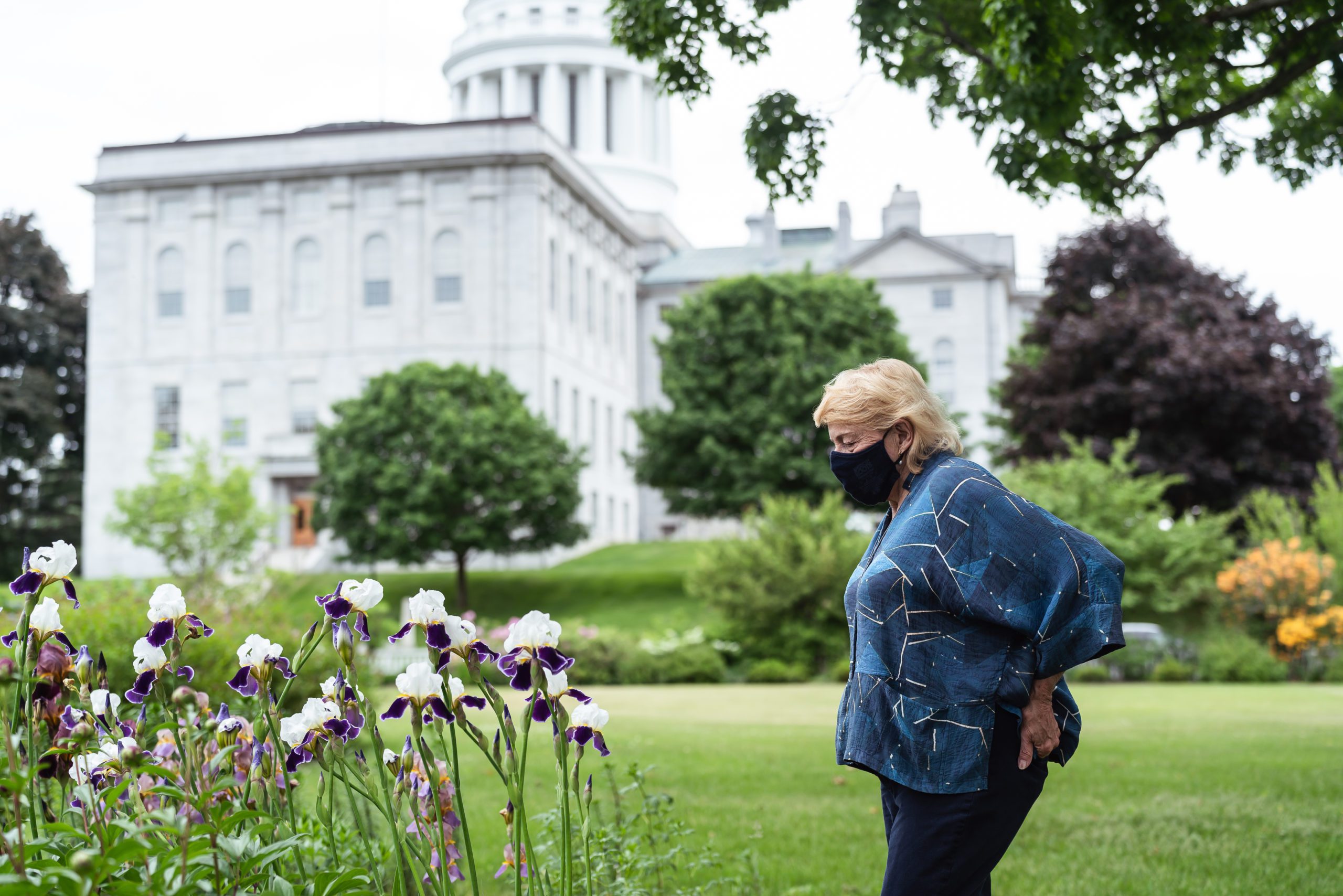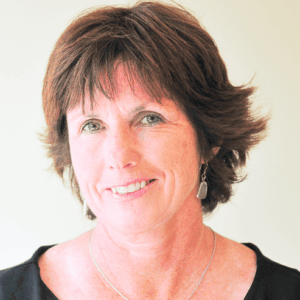Janet Mills weighed the life-changing decision.
A month before her 15th birthday, Janet, her parents and two of her siblings traveled in the family station wagon from their Farmington, Maine, home to the A. I. duPont Institute for Crippled Children in Wilmington, Delaware.
Janet had scoliosis, a severe spine curvature.
On that Nov. 12 day in 1962, the doctor at the nationally renowned hospital explained that without surgery, Janet’s condition would worsen and her spine would continue to curve. If she opted for treatment, surgeons would perform two operations and insert a steel rod in her back. Janet would spend nine months in bed, immobile and wrapped in a body cast.
“She wept a little bit,” remembered her brother, Paul Mills, a lawyer in Farmington. “It was an unsettling crisis to deal with at her age. None of us were sure what she was going to do.”
Janet talked the emotional decision over with her parents. Then she met twice more with the doctor – alone.
The 14-year-old weighed the pros and cons, analyzed the medical information and chose to have the surgery.
“Her courageous decision parallels what you see today,” said Paul Mills of his older sister. “She was always remarkable under pressure.”

Nearly 60 years after her life-changing surgery, Maine’s first female governor faced extraordinary pressure and decisions as a pandemic ravaged the world.
Some Maine residents and business owners have railed against the 72-year-old Democrat, accusing her of destroying the economy with the state’s emergency shutdown in late March and the restrictions that stretch through August and beyond.
Republican legislators attempted to impeach her.
President Trump and former Republican Gov. Paul LePage called Mills a ‘dictator,’ bent on ruining the state’s economy.
Mills has also received thousands of emails and hundreds of cards from Maine residents of all ages thanking her for keeping them safe.
“I think she has done an exceptional job under about the toughest set of circumstances any governor could be handed,” said Sen. Angus King (I-Maine), who was Maine’s governor from 1995-2003. “The governors of Florida, Texas and Arizona took the opposite tact. They didn’t impose strict shutdown rules. They reopened too soon … and now the price is being paid in deaths, and in an increase in cases and in zero beds in the Houston hospital system.”
As COVID-19 resurges globally, the United States has reported more than 160,000 deaths and nearly 5 million infections. While the virus spikes in South and Southwestern states, Maine, as of early August, had the third-lowest rate of COVID-19 cases per capita after Hawaii and Vermont.
Still, some citizens blame Mills for opening the state too early to tourists from states with high infection rates.
Despite the criticism, the governor remains steadfast in her decisions.
“From day one, I told my people there’s going to be Monday morning quarterbacking,” Mills said. “There are going to be people judging us in hindsight with critical and sometimes cruel comments.
“But that’s OK. I can take that. But what I couldn’t take is losing more human lives to this virus. I have done everything I could to save lives.”
• • • •
Since the first patient in Maine tested presumptively positive for COVID-19 on March 12, Mills has issued nearly 60 executive orders to mitigate the spread of the virus and contain its impact on Maine.
On March 15, she declared a state of emergency, a status she has renewed each month through August to enable Maine to access federal emergency funding.
Mainers, young and old, felt the first disruptions to daily life when the governor recommended suspending in-classroom public education, postponing non-urgent medical procedures and canceling events with 50 or more people in mid-March.
The following weeks were marked by increasing restrictions and skyrocketing unemployment claims. Mills shut down the state’s bars and restaurants, allowing only take-out, delivery and drive-thru. She also urged non-essential businesses like hair salons, movie theaters, gyms and shopping malls to close.
On March 24, as virus infections spiked to 118, Mills took a harder line, mandating that all non-essential businesses shutter their doors and limiting large grocery or hardware stores to 100 or less customers at a time.
By the month’s end, the virus nearly tripled to 303 cases and claimed the lives of five Mainers. Citing the public health threat, Mills joined 32 other governors in issuing a stay-at-home order. The mandate prohibited Maine residents and visitors from everything but work-related travel, grocery shopping, medical care or socially distanced outdoor activities. Mills also ordered that schools suspend in-classroom instruction.
As visitors from pandemic hot spots like New York, Massachusetts, Connecticut and New Jersey fled to Maine, messages flashed on the Maine Turnpike electronic billboards, warning travelers to self-quarantine for 14 days.
To deter travel, Mills also shut down hotels, inns, short-term rentals and all public and private camping facilities.
“For those people who come to Maine,” Mills said “my message is clear: You should not think you can escape the virus by coming here. And while you are here you are obviously subject to the laws, orders and protocols of the state of Maine. Our health facilities may soon be crowded and overwhelmed. If you get sick or are sick, treatment may be scarce or even unavailable to you.”
In late April, after the Maine CDC reported the state’s 20th death, the state’s Republicans criticized Mills for crippling Maine’s economy with overzealous restrictions.
Mills, said state senate candidate Matt Leonard, has “gone full totalitarian.”
As indoor dining continued to be prohibited, some restaurant owners pushed back.
Rick Savage, the owner of Sunday River Brewing Co., appeared on “Tucker Carlson Tonight” on Fox News.
Fed up with Mills’ mandates and restrictions, Savage told Carlson he planned on reopening his Bethel restaurant May 1, daring the state to stop him.
“We’ve been closed for six weeks now,” said Savage. “It’s time to open back up.”
Carlson noted that Maine had one of the nation’s lowest virus infection rates with 1,095 infections and 53 deaths. “One in seven Mainers is unemployed, thanks to Janet Mills,” said Carlson, who called Mills “the most incompetent, dictatorial, self-involved governor that I’ve seen in a long time.”
Before the show concluded, the brew pub owner added, “I would love to share Janet Mills’ cell phone number with everyone so they can give her a call directly.”
With a grin, Savage divulged Mills’ phone number to millions of viewers.
Undaunted, Mills changed her phone number and continued with her four-stage pandemic plan, easing restrictions in June and July, allowing most businesses to reopen with safety precautions. Concerned about tourists spreading the virus, Mills also ordered businesses in coastal communities and the state’s most populous cities to ensure that their customers and employees wear masks.
Maine, Mills said, has “to continue prioritizing public health.”
• • • •
The June wind was brisk and cold as Gov. Mills and her security guard exited the quiet and near-empty State House.
Mills cleared the Blaine House security gate and greeted visitors.
When asked, “How was your day?” the governor grimaced.
“Don’t ask,” she replied. “It’s always an interesting day.”
Mills glanced at her iPhone, which had been bombarded 24/7 for three months with texts, emails and calls from staff, the state pandemic task force, advisors, cabinet members, fellow governors, lawmakers, family and friends.
“Hasn’t been a great day for a while,” she said. “For three months my staff, everyone has been working non-stop. Working holidays.”
Mills shrugged and swung her arms in the air, shaking off the stress.
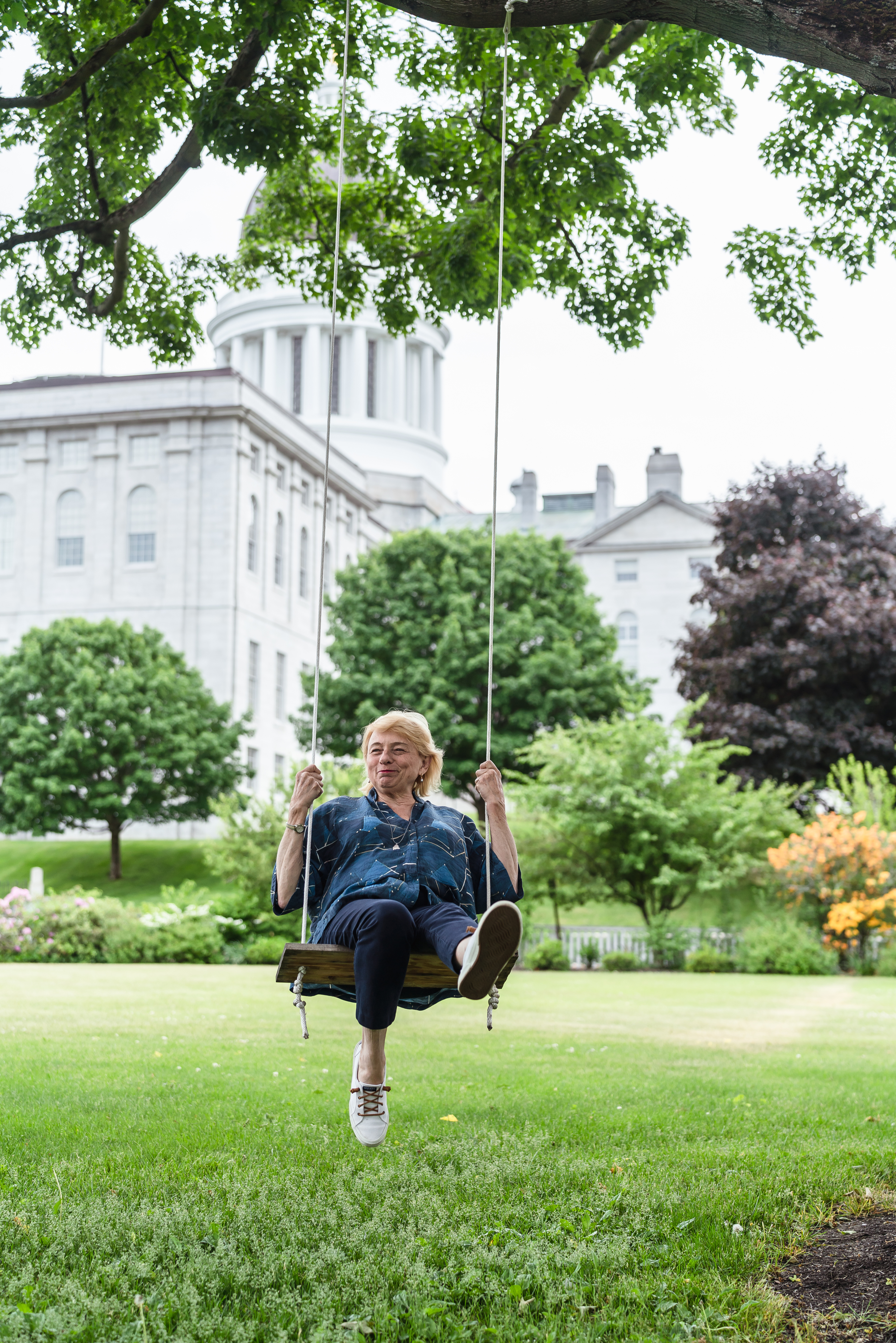
“God, look at those!” she said marveling at the vivid white and purple irises growing on the Blaine House grounds.
An old wooden rope swing hung from a nearby maple tree that towered over the governor.
“That,” Mills said smiling, “is my one contribution to the grounds.”
At times during the lockdown, Mills ventured into the night and swung from the century-old maple tree.
“I like it,” she said of the old-fashioned swing. “It makes me feel like a kid again.”
Surrounded by a backdrop of birdsong and commuter traffic, Mills settled onto a patio couch behind the Blaine House. Dark circles framed her eyes, a testament to months of worrisome nights, waking to read her phone, to jot down notes, ideas, thoughts on everything from procuring more personal protective equipment and coronavirus-testing kits, to stabilizing the economy and saving lives.
“It’s a pretty bizarre thing when you think about it,” Mills said, her voice rising with emotion. “Nobody runs for governor thinking, ‘one day I will issue a proclamation issuing a state of emergency.’ Nobody runs for governor thinking, ‘I’ll issue a proclamation telling everybody to stay home.’
“But,” she added with a sigh, “it was so necessary, and I think we were successful in keeping the numbers low compared to other states.”
Mills, like thousands of others in Maine, isolated herself in late March and April, in the Blaine House.
The 1833 mansion, where Maine’s governors have lived for the past century, was suddenly too quiet, too still. No more tours, no more parties, luncheons, public events. No celebrations to commemorate Maine’s bicentennial birthday.
“It’s like living in a bubble, kind of cloistered…” Mills explained. “It took a lot of getting used to when you’re on a heavy schedule of working in the office all day and going to press events outside the office, and going to this and that and the other thing.
“And all of a sudden, boom, there’s no more of that. It’s a different thing, different world, but it’s been that way for everybody.”
Alone in the sprawling, two-story building, Mills and her security guards formed new routines.
“So, my security guy and I, whoever’s on, we’ve been cooking and cleaning and doing dishes. Doing our laundry, ironing.”
“We didn’t do much weeding, didn’t have time for that,” Mills joked. “It’s a hard place to take care of.”
She also practiced her piano-playing skills (which she says aren’t very good) and her ‘bank shots’ on the Blaine House’s billiard table.
Among the solitude, Mills has grown to appreciate the expansive Blaine House gardens and nearby Capitol Park, where she sometimes walks.
“For a while I was coming out here in the morning, feeding the birds,” Mills said, gazing at a robin on the nearby fence. “Birds are good. Right now they’re the only people I can talk to.”
“Bird Woman of the Blaine House,” she added, snorting a laugh. “That’s pretty bad.”
In between the lighthearted moments, there have been many sleepless nights, and ample anguish over lives lost to COVID-19 and decisions made to shut down schools, restaurants, hotels, gyms, beaches, campsites and retail stores. Mills often found solace gazing at one of her favorite paintings loaned to the home.
Titled “Wake” and painted by Jamie Wyeth, the image captures a gull in flight over a turbulent sea. The bird is bold, vivid and powerful; its wings stretched wide, beak open, eyes dark. Hung in the hallway just outside an intimate dining room, the gull greeted Mills whenever she walked in the Blaine House back door. The image stirred strong emotions in Mills, a longtime Wyeth admirer.
“It comforts me,” Mills explained. “It gives me courage.”

Though she spent a lot of time alone, distanced from staff and family in late March and April, Mills said she was never lonely.
“I don’t mind being alone,” she said. “My husband passed away 5 1/2 years ago. So I don’t have a spouse. And the kids are grown up.
“I married a widower with five daughters,” Mills added, laughing. “Now, that prepared me for a lot of conflict and controversy.”

Long before she embraced five new daughters, Janet Trafton Mills faced more than her share of conflict and controversy. She learned early on from her father, Sumner Peter Mills Jr., that challenges must be met with courage and conviction. A World War II veteran, prominent lawyer, Republican legislator and Maine’s U.S. Attorney for 16 years, Mills investigated the corrupt and the elite. He held himself to high standards and expected the same of his five children.
Mills also had a reputation for helping the underdog and those in need. He volunteered his children to help the elderly and handicapped. They mowed lawns and shoveled snow for people unable to do so themselves.
“He prioritized integrity and character-building,” said Mills. “When I was 5 years old, I had a paper route. I had to work. And at night I had to keep a journal, even though I couldn’t even write very well. But (my parents) wanted us to keep memories and work hard.”
Mills’ mother, Katherine Louise Coffin, was the daughter of an Aroostook County potato farmer. She taught English, Latin and public speaking to thousands of students in northern and western Maine.
Katherine also taught her own five children how to write and speak, clearly and concisely. Fond of literature and poetry, she assigned her sons and daughters extra homework outside of school.
“My mother emphasized with all of us the need to communicate clearly and intelligently,” Mills said.
Katherine also worried about her shy eldest daughter.
Years later, as Janet pursued public service, her mother would marvel at her once-timid daughter’s exemplary public speaking skills.
• • • •
In December 1962, five days before Christmas, the family station wagon pulled up to the Mills’ home in Farmington. Janet’s father and a few other men carefully carried the teenager from the back of the car and placed her in a hospital bed set up in the middle of the living room.
Janet had spent six weeks alone in the Wilmington hospital undergoing two operations. Due to hospital rules, visits from family were restricted.
“There were kids from all over the world there,” said Mills’ younger sister, Dora Anne Mills. “She saw some pretty frightening and horrific conditions in children. Children who were suffering a lot more than herself.”
Back at home, immobile and in a body cast, Janet relied on her parents for all her needs. Despite her condition, she kept up with her schoolwork. The once-shy girl also developed a sense of humor as an antidote to her confinement.
Located on a downtown college campus in Farmington, the Mills home was rarely quiet. Friends, neighborhood children, prominent lawyers and politicians like U.S. Sen. Margaret Chase Smith often stopped by.
“Here Janet was in the middle of the living room with all these people coming back and forth,” said Dora, Maine’s former CDC chief and now MaineHealth’s chief health improvement officer.
“This is when you are 15 gaining some independence, and here she was thrust into a body cast in a hospital bed, where she was 100 percent dependent on everyone else.”

The experience affected Janet deeply, her sister said.
“She grew this resilience and strength to get through it all,” said Dora. “The suffering she witnessed with other children at the hospital, it made her heart very soft, but it also made her very tough.”
Once her spine healed and her cast was removed, Janet returned to school in the fall of 1963, graduating from Farmington High in 1965. She later enrolled at Colby College, where, Dora explained, Janet sought to “make up for lost time.”
“She had,” Dora added, “a few rebellious years.”
In 1965, Colby College with its dorm mothers, curfews and dress codes was not a good fit for a young woman striving to gain independence. The Waterville campus was also too close to home.
“My parents were both alums,” Dora said. “They showed up every weekend for football games to check on her, and it drove her crazy.”
Janet, who also was not fond of her parents showing up at frat parties, had a few memorable moments at the college.
“Story goes that she was climbing in a dorm wing window at night after curfew and the fire alarm went off, and everyone had to evacuate,” Dora said. “Janet was halfway in the window and the dorm mother was scolding her.”
Several months later, just before Christmas, Janet broached the subject of dropping out with her parents.
“At the time, taking a break was not as widely accepted as it is today,” said Janet’s brother, Paul. “There was a sense of foreboding that this was the point of no return on the part of my mother …That she wouldn’t go anywhere in her professional life.”
Despite her mother’s misgivings, Janet headed to San Francisco in January 1967, just after her 19th birthday.
“There was a transformation there,” said Janet’s older brother, Peter Mills, the Maine Turnpike Authority executive director. “I think a declaration of independence from her family, not hostility, but just wanting to be on her own. Not dependent on anyone.”
While in California, Janet worked, took classes at San Francisco State and thrived during the ‘Summer of Love,’ when nearly 100,000 young people converged in San Francisco’s Haight-Ashbury neighborhood to protest the Vietnam War and the government. During the country’s unrest over the war and civil rights, Janet surprised her longtime Republican family and became a Democrat.
That fall she returned to Boston and graduated from UMass Boston with a Bachelor of Arts in French in 1970. Accepted to the University of Maine School of Law, Janet decided instead to intern at a Washington, D.C. law firm, working as a secretary and paralegal.
While she excelled at her job, she struggled in her personal relationship.
“She was with a guy, they lived together,” recalled Dora. “He was very abusive. Back then no one talked about that stuff. He was also an alcoholic and a couple times he threatened her quite a bit, held a gun to her head. She realized she was going to die if she didn’t leave.”
Janet left the apartment without her belongings and headed home to pursue a law degree.
Years later when Janet was hired as Maine’s first female prosecutor in the district attorney’s office, few of her colleagues knew she had endured domestic violence. Memories of the abusive relationship fueled Janet’s passion for helping women and children trapped in violent homes.
“She spent quite a few years,” recalled Dora, “as a prosecutor working on domestic violence issues.”
• • • •
Long before clashing with LePage and Trump in her roles as state attorney general, then governor, Mills became Maine’s first female district attorney in 1980.
At age 32, she was the first woman in New England and one of the first women appointed nationally to such a position.
Leading a DA’s office in a male-dominated criminal justice system 40 years ago had its challenges, Mills said.
“Reporters would ask me, ‘What is it like to be a woman DA?’ And I’d say, ‘I dunno. What it’s like to be a male DA?’ I just know I have a job to do, and I think I know how to do it.”

At the time Gov. Joseph Brennan appointed Mills to the interim position, there were several men interested in the vacancy. When Mills announced her appointment in the DA office, a male colleague hollered down the hall: “Well, I guess if I had a set of ovaries, I would have gotten the job.”
Mills offered a silent reply.
“OK sucker, that’s the way you feel, I’ll prove you wrong.”
Mills recalled the moment in a voice laced with emotion.
“You can’t react and respond to people who just, who sink to name-calling.”
Three months later, Mills ran for the DA seat and won. She served as western Maine’s top prosecutor until 1994.
Decades later, she marked more milestones. In 2009, she served as the state’s first female attorney general. In January 2019, Mills became Maine’s first female governor.
The state’s 75th governor has also earned the unwanted precedent of leading Maine during its first novel coronavirus pandemic.
Birds swooped in nearby trees and the late afternoon sky filled with clouds as Mills reflected on the extraordinary events wrought by the pandemic.
In December 2019, Mills and her newly appointed Maine Center for Disease Control and Prevention director, Dr. Nirav Shah, monitored the virus as it spread from Wuhan, China, to other countries. They also began preparing for when the virus struck Maine.
“What we realized early on is that although a lot of the response to COVID-19 would invariably involve public health issues, public health doesn’t exist in a vacuum,” Shah said. “We realized how expansive and far-reaching the response needed to be, and that’s when (the governor) made the decision to literally bring everyone to the table.”
On March 2, Mills convened a coronavirus response team headed by Shah that included commissioners of every cabinet position, from the Departments of Health and Human Services, Defense, Veterans and Emergency Management, to Public Safety, Education, Corrections and Labor.
When Shah informed Mills of Maine’s first COVID-19 case in Androscoggin County on March 12, her response was comforting.
“It was even keel, level-headed, a ‘We’ve got this,’ ” Shah remembered. “As opposed to, ‘Oh my God, what are we going to do now?’ ”
“That’s the kind of boss you want to have,” Shah added. “It means they’re going to be unflappable, no matter what.”
As the virus began to spread throughout Maine, Mills issued a March 24 stay-at-home order and mandated that non-essential businesses close.
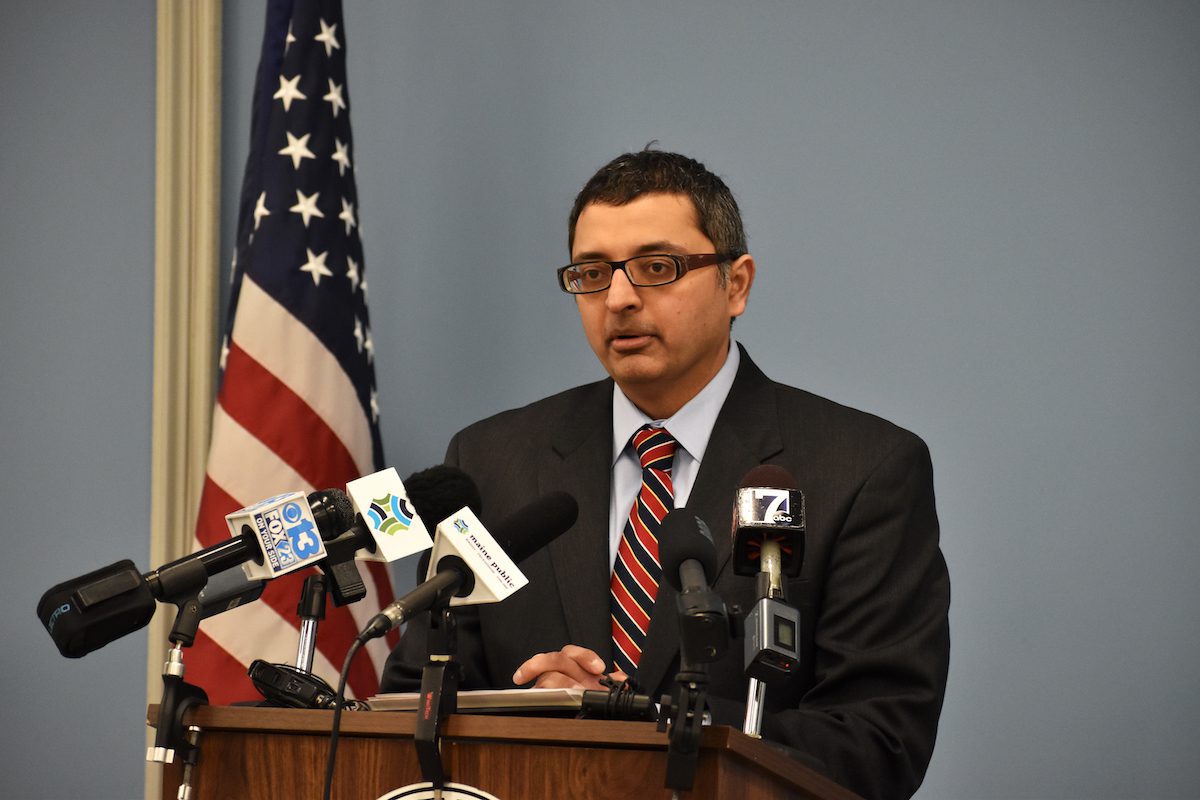
Mills, Shah and several members of the task force and the governor’s staff began working 18- and 20-hour days. Mills stayed up past midnight, sleeping a few hours, often waking to read emails and write down thoughts and notes for the next day’s meetings.
“Those first few weeks, I thought I just don’t know how we are going to handle working 18 and 20 hours a day, seven days a week,” said Jeremy Kennedy, Mills’ chief of staff. “There was just not enough time and no road map for all these decisions.”
Shah, who began directing Maine’s CDC in June 2019, marveled at how Mills led the daily task force Zoom meetings.
“The first thing she wants to know is, ‘What are the facts?’ ” Shah said. “‘What does the science and the data say?’ ”
In a national climate, where several politicians have ignored, derided and called CDC directors ‘fear mongers,’ Mills is an outlier, Shah said.
“You’ve got health directors across the country,” Shah said, “being fired left and right for saying the things I do.”
Mills, Shah said, also assimilates vast amounts of information from multiple viewpoints, balancing ethical and economic issues before making a decision.
“In a pandemic situation,” Shah explained, “where you are dealing with lots of uncertainty, that clarity of thought and clarity of decision-making is critical.”
The sense of humor Mills developed as a young girl confined in a body cast has also bolstered the task force after long, emotionally exhausting days.
“When times are tough and dark, your team cues their emotions based on what the leader is doing,” Shah said. “I’m not suggesting she is flippant or minimizing things, but if the leader is morose or despondent, that basically tells the team that it’s time to pack up and go home.”
Many of Mills’ critics would prefer that she ‘pack up and go home,’ including LePage, who clashed with Mills when she served as attorney general from 2013-18.
During the president’s June 5 visit to Maine, LePage joined Trump in a roundtable discussion concerning Maine’s struggling lobster industry. The conversation quickly veered toward the pandemic, and LePage criticized Mills for harming Maine’s tourism economy with her restrictions.
The state, LePage told Trump, was “still tied up pretty tight because we have a governor who is not reopening very fast.”
“You have a governor that doesn’t know what she’s doing,” Trump replied. “And she’s like a dictator.”
“How could she do a thing like this, she’s gonna destroy your state,” Trump continued. “I’m not a fan. I’m not a fan.”
Less than a week later, Mills shook her head at the memory of Trump’s visit and his derogatory statements.
In early June when the president visited, violence and unrest simmered in Maine and throughout the country.
“On top of everything else we were dealing with, you know, Black Lives Matter, protests in the streets, pandemic, recession, unemployment and then, the president decides to visit.”
Her tone thick with sarcasm, Mills added, “It made my week.”
Four days before the president’s arrival, Mills and the country’s 49 other governors joined the weekly White House conference call with Vice President Mike Pence and Dr. Anthony Fauci, the nation’s top infectious disease expert. Typically, Mills said, Pence and Fauci offer updates on the pandemic, PPE and testing supplies.
“And all of sudden,” Mills recalled, “the president came on the call and he was very angry, very loud, and it was a rambling disjointed rant.
“It was very disturbing. And we learned later he had been on the phone with (Russian President Vladimir) Putin before that.”
Mills urged the President not to come to Maine to visit Guilford’s Puritan Medical Products, one of the country’s biggest producers of COVID-19 testing swabs.
Mills told Trump his visit could create “unrest” across the state. Trump scoffed at the governor’s attempt to dissuade him.
“He took it as a double-dare, I guess,” Mills said laughing.
Neither Mills, Maine’s 2nd District Democratic U.S. Congressman Jared Golden nor the Democratic mayor of Bangor, where Air Force One landed, were invited to greet the president.
Soon after Air Force One lifted off the runway to return to Washington, Mills penned a statement addressing the president’s remarks.
“What Maine people heard today was more of the same incendiary rhetoric and insults he uses to try to divide us and to stoke tension and fear. What Maine people heard today was largely devoid of fact and absent of reality … I have spent the better part of my career listening to loud men talk tough to disguise their weakness. That’s what I heard today.”
Seated on her patio couch, Mills fell silent recalling the stressful visit.
“It was political theater,” she said, shaking her head.
And Trump calling her a dictator?
Mills repeated the word in a whisper and laughed.
“Well, you know, sticks and stones.”
• • • •
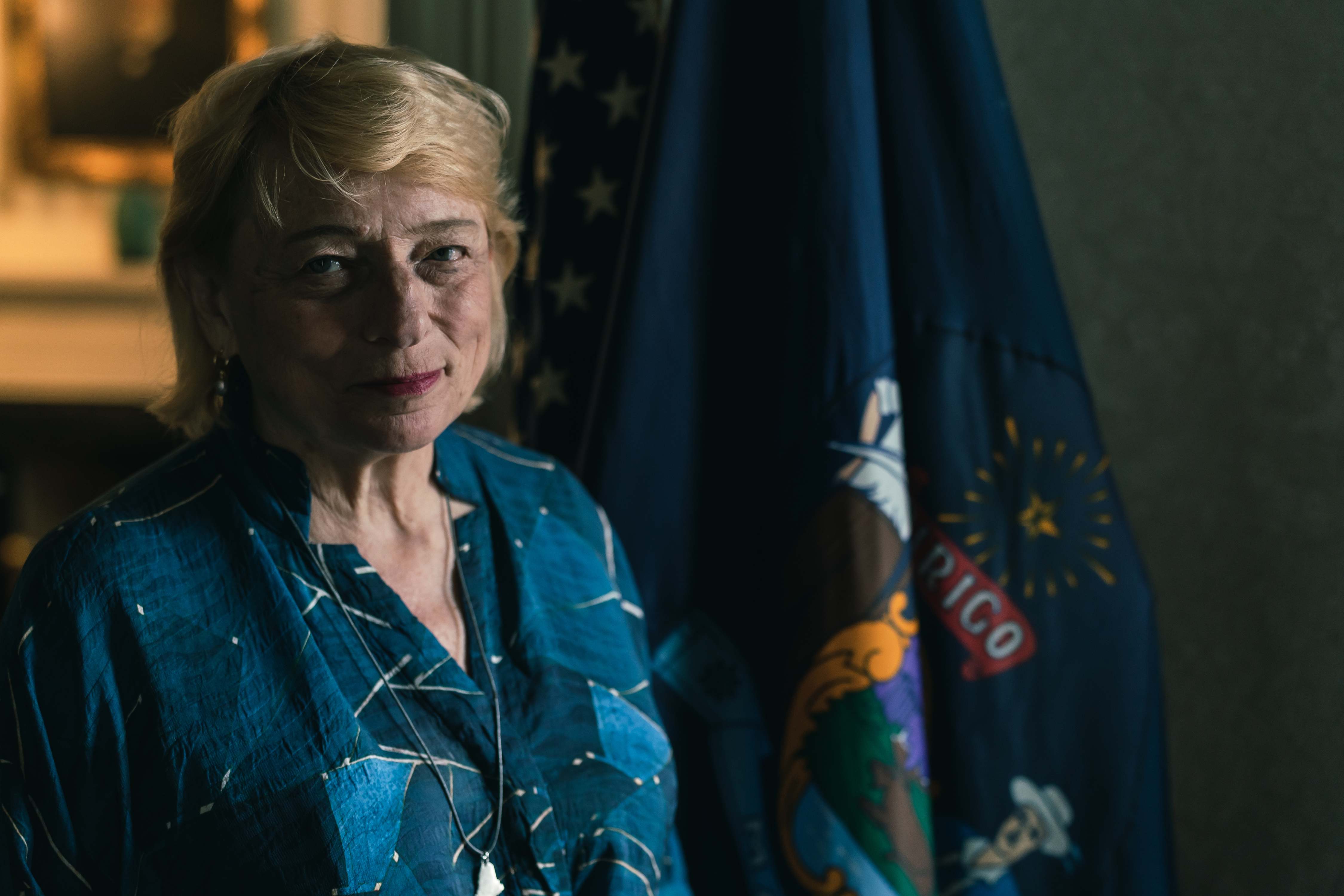
A book by American historian and author Doris Kearns Goodwin rests on Mills’ bed table.
Called “Leadership: In Turbulent Times,” it chronicles the decisions, actions, thoughts and character of four American presidents – Abraham Lincoln, Theodore Roosevelt, Franklin D. Roosevelt and Lyndon B. Johnson – who led the country during national crises.
“I pick that up and read chapters about people in leadership positions who faced a lot more dramatic emergencies, a lot more serious times than these,” Mills said. “It puts things in perspective.”
Mills also sought advice from former Maine governors the day she issued the order to close all non-essential businesses and mandated that citizens stay home. All of the leaders shared a similar piece of advice: “Tell the people the truth, even if it’s ambiguous, even if there are gray areas. Tell the people the truth and they will trust you.
“Do not,” they warned, “ever lie to them.”
One of Mills’ first calls was to Sen. King, who governed Maine during one of its most challenging winters.
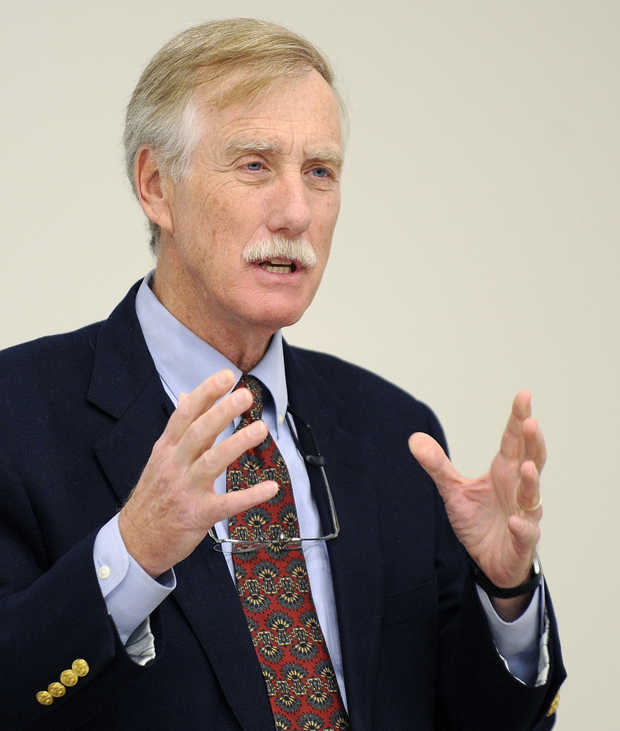
“I had to face the ice storm in 1998,” said King. “Two-thirds of the people of Maine lost electricity. It was in the middle of winter and a very dangerous moment, but limited in time over two, three weeks. (The pandemic) has dragged on for months and has required her to make intensely unpopular decisions.”
The president, King said, put Mills and every other governor in the country in a precarious position.
The country would have suffered fewer deaths and infections during the pandemic, King added, if Trump “had treated it as a health issue and concentrated his efforts on solving the health problems, instead of trying to at first minimize it and now essentially ignore it.”
The “president’s essential absence of leadership,” King said, forced governors to make extraordinary and difficult decisions.
“He early on punted the responsibility to the governors,” King said. “And that put the governors in a terrible position because they didn’t have the tools that (the president) had to deal with the problem, in terms of testing, infrastructure, funding.”
Though it is easy to measure the virus’ impact on Maine’s economic hardship and its unemployment rate (6.6 percent in June, down from 10.4 percent in April), the benefits of Mills’ decisions, King said, are ‘invisible.’
“The number of lives saved is hard to measure, that’s why her decisions are so courageous,” said King. “It would have been much easier to buckle and say, ‘Open hotels on June 1 or Memorial Day and open bars.’ But then we would be having people die.”
Still, King noted, the restrictions on Maine’s tourism industry, which makes the bulk of its money during the summer, has been especially hard. Over the next three years, the state expects a $1.4 billion shortfall in lost sales from the hospitality industry and income tax revenue as Maine recovers from the recession.
“It’s a terrible problem,” the senator added. “But I still think (Mills) did the right thing.
“Politicians always talk about making the tough decisions, but most of them don’t. She did.”
• • • •
Late-afternoon shadows darkened the Blaine House patio as Mills talked about the cards that arrive daily.
“I’ve gotten, oh my God, hundreds of personal cards, emails, too. Thousands of emails from people,” Mills said, her voice rising with emotion. “Hundreds of cards from people of all ages.”
One of the cards came from a 6-year-old girl.
“She sent me a handwritten note, and she can barely write,” Mills said. “She put a five-dollar bill in there for me to treat myself.”
As she does with everyone who writes her, Mills penned a return note. She sent the money back, thanked the girl and told her to buy something nice for her mom or dad.
A lot of older people send Mills cards, too, telling the governor, ‘Thank you for keeping us safe.’
“I’m not a crier,” Mills said, “but some of those cards made me cry.”
Maine’s first COVID-19 death also took a toll on the governor. As she recounted the state’s first pandemic victim, Albert “Kerck” Kelsey, Mills sighed, and tears welled in her eyes.
Kelsey died March 26 at Ocean View, a retirement community in Falmouth, at age 87. He was a historian, author and descendant of a prominent Maine family that included Gov. Israel Washburn, who led the state during the Civil War.
“When we announced that at the press conference,” Mills said, “it was kind of emotional that we lost a person, that we lost a person’s life.”
Regardless of fame, gender, or political persuasion, every COVID-19 death, Mills said, is a tragedy.
“Dr. Shah is so compassionate when he talks about these statistics, because they’re not statistics,” Mills said. “They’re people. If it were your aunt, or uncle or grandmother or cousin, you would want to make it known that they weren’t just COVID-19 number 89.”
Mills’ voice rose in anger as she lamented the politicization of the pandemic, and Maine citizens who ignored public health recommendations to wear masks and maintain safe distances.
“The pandemic doesn’t care whether you’re an Independent, Democrat or Green. This pandemic has destroyed lives up and down the state. No matter who you are, where you came from or how long you’ve been here.”
Nationally, Mills added, Maine has a high percent of people vulnerable to the virus. Ranked the grayest state in the country, with more than 20 percent of its citizens over age 65, the state’s citizens also have high rates of diabetes, hypertension, obesity and asthma.
“We can’t just isolate the so-called vulnerable people,” Mills said. “Colonize them, put them in a sanatorium or something.”
Maine, now in Stage 3 of Mills’ pandemic plan, prohibits indoor gatherings of more than 50 people and all visitors from high-risk states must quarantine for 14 days or show proof of a negative COVID-19 test.
Visitors from New Hampshire, Vermont, New York, New Jersey and Connecticut, states currently with low infection rates, are exempt from the quarantine requirement. But Massachusetts and Rhode Island, which have the highest virus positivity rate in New England, still must quarantine.
The restriction on Massachusetts, Maine’s top contributor in tourism dollars, prompted criticism from the state’s Republicans and business owners.
“Without a chance at salvaging part of the tourism season, said Senate Republican Leader Dana Dow of Lincoln, “businesses and livelihoods are being destroyed.”
Mills penned a harsh reply.
“For the life of me,” Mills countered, “I cannot understand why Republicans care more about Massachusetts money than the life of a Maine person.”
Mills contended that the Republicans’ request to ease up on tourist restrictions would spark a resurgence of the virus, which would hurt Maine’s economy for years.
“It would be easy in the sense of opening everything up, olly, olly umphrey,” Mills said, referring to the game of hide and seek when players are called out of hiding. “But that isn’t realistic from a public health point of view.”
If Maine Republicans want to see how COVID-19 can devastate lives and livelihoods, Mills said, “They need only look to states like Florida, Texas or Arizona, who have had to slam the door shut on their economies again.”
• • • •
As the days grow shorter and the nights cooler, Mills, like many Mainers, will savor summer’s waning days by the sea or on one of the state’s pristine lakes. Retreating to her family camp on the weekends, Mills will enjoy barbecues, campfires and untold rounds of Scrabble and Hearts. She will cherish tranquil moments on the lake, kayaking, fishing and listening to the loons wail.
And she will lie awake at night, worrying about Maine’s economy, the safety of its citizens, and the lethal virus that is expected to resurge in the fall as schools reopen.
In the dark, Mills will reflect upon memories of her mentor, U.S. Senator Margaret Chase Smith. Maine’s first female U.S. representative and U.S. senator, Smith served in Washington from 1940-73.
A close friend to Mills’ father, Smith wrote a letter to Janet the week after she was born.
“I’m delighted you arrived,” Smith said. “You have so much to live up to.”
Mills admired and kept in close touch with Smith until her death in 1995 at age 97. A moderate Republican, Smith was one of the first senators to stand up to Republican Joe McCarthy and his anti-Communism scare tactics in her ‘Declaration of Conscience’ 1950 speech before Congress.
“Hard to imagine, she was all alone standing in the U.S. Senate, facing down one of the cruelest, most hated bigoted politicians in the history of the Senate,” Mills said. “That had to take a tremendous amount of courage.
“I’m not in that position,” Mills added, “but I can take her example of how she held her head high and courageously spoke the truth.”
Maine Monitor contributor Darren Fishell created the data visualization for this story. Maine Monitor contributor Julie Pike compiled the timeline.
Editor’s Note: An earlier version of this story was prematurely shared on Aug. 8 while our site was undergoing an update. We regret the error.


